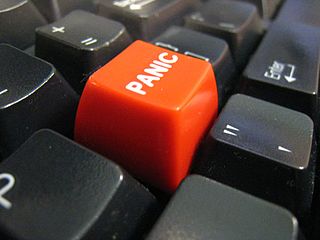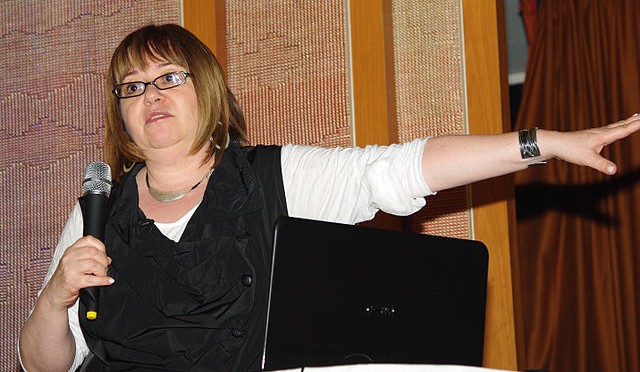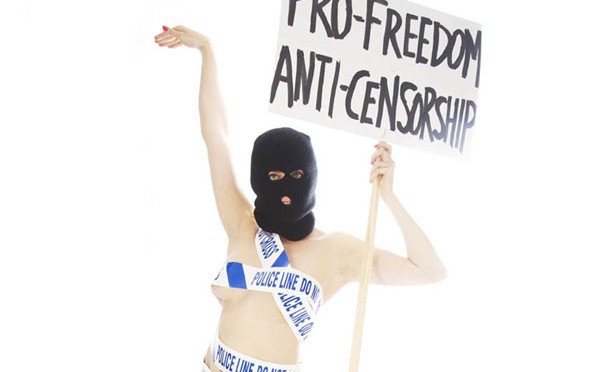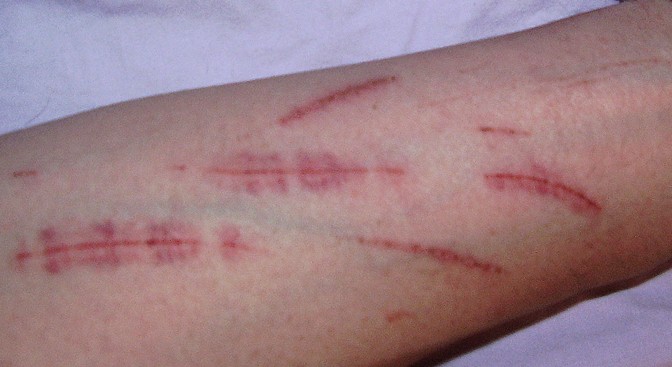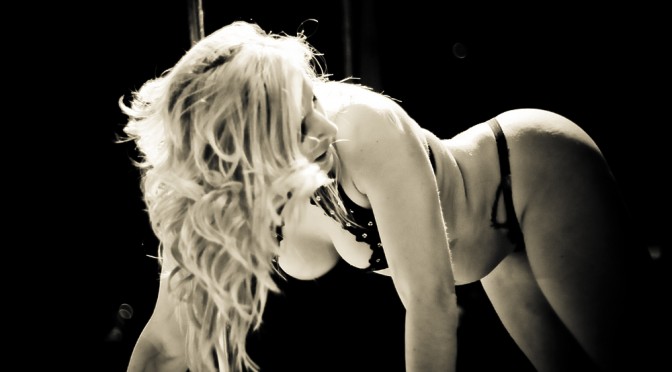Stripper Edie Lamort writes about snobbish and prudish attacks on strip clubs made in the name of feminism.
This Friday 28th February, Labour MP Diana Johnson, will be reading her proposals for a new bill on Sex Entertainment Venues (SEVs) for the second time in the House of Commons. She is the MP for Kingston-Upon-Hull and the striptease venues near her are Honey Trap and Purple Door. Her bill aims to increase regulations of Sexual Encounter Venues (SEVs) despite these being very heavily regulated anyway. Currently a council can consult with the public on SEVs and ask if it wishes to see a nil policy introduced. Effectively banning striptease in that particular borough. However this is not mandatory and this new legislation seeks to make it mandatory for all councils to go through this procedure, whether they believe it relevant or not.
Along with being an admirer of extremist lobby group Object she states: “As well as the specific concerns about the links between the sex entertainment industry and coercion and human trafficking, there is a widespread view that lap-dancing clubs can contribute in a negative way to the general character of an area and detract from the residents’ quality of life, especially if the clubs are located in residential areas or near schools.”
This is the usual line given and is not supported by any evidence. In terms of human trafficking; the very idea of allowing legal licensed venues is to prevent such things. You have to show your passport to the club to prove that you can legitimately work in the UK therefore making it impossible for undocumented or trafficked persons to get a job. Copies of passports must be held by the club as they can be checked by the local council at any time.
Tied up in the ‘concerns’ about coercion is the patronising attitude that good girls couldn’t possibly choose such a job and those who do must be damaged, drug addicts and therefore coerced.
In terms of them contributing negatively to the character of the area one thing I hear frequently, when attending debates on the subject, is the phrase ‘I had no idea these places existed in my borough, but they must be banned.’ So if they had no idea they existed then they weren’t causing that much trouble in the first place. There have also been very strict regulations on the kind of signage and advertising clubs can do for many years now. No club is allowed to display obscene or overt advertising or flyer passers by.
Finally clubs are not usually open during school hours and children do not attend school in the nighttime. But hey, why let the facts get in the way of a good moral panic?
She also uses quotes from three concerned local residents who do not like striptease venues. They say they fear the customers of such clubs and feel vulnerable. As much as their fears are real to them we must ask if they are founded. Is this fear real or imagined?
The three residents quoted by Diana Johnson may not like the dancers and dislike the customers. They may find us all slutty and trashy for dancing naked but I find their snobbery distasteful. They are welcome to their opinion but I and many others are also entitled to our freedom. The argument of finding customers of strip pubs rowdy and unpleasant could also be used against football supporters, clubbers or rock fans going to a gig.
A few weeks ago, in the club I work in, we had a group of girls in celebrating a birthday. They were great fun, respectful to all and are most welcome to come again. These women were not afraid of dancers or customers. Not all women are quaking with fear because of striptease.
The Stripping the Illusion blog recently put in a freedom of information request to the Kingston-Upon-Hull City Council to see if they too were of the same mind as the three upset residents.
“Freedom of Information Act 2000 – Information Request – 000304/14
With regard to your Freedom of Information request received on 7 February 2014, please find our response below.
‘I am making an enquiry under the terms of the Freedom of Information Act, and I would grateful if you would provide me the following information:-
• Details of premises within the city currently licenced for striptease (either under the Police and Crime Act 2009, or the Licensing Act 2003);
• Details of any premises which were licenced for striptease (under the Licensing Act 2003) over the last ten years, i.e. from February 2004;
• Records of any official complaints made against the above premises, either to Kingston-upon-Hull City Council or Humberside Police.’
The only two premises that have been licensed for striptease are Fantasy Bar (now the Honey Trap) and Purple Door. There have been no official complaints made against either of these premises.
We hope that you will be satisfied with our response and should you require any further information then please do not hesitate to contact us.”
It is very easy to criticise and condemn something you don’t understand but the main question here is do we want to live in the prison of other people’s fears? Fears that are not your own but simply those of a tiny yet vocal minority. Whilst their fear is of significance to them we cannot let them dictate to the more courageous majority and have the richness of our lives censored or limited.
This does not only affect dancing venues. If we continue to put the opinions of the local busybody, someone with a grudge or perhaps the interests of a property developer over and above the enjoyment of the rest of society we will all be poorer. This nimbyism doesn’t stop at strip clubs. More and more the objections of a tiny minority of residents are causing venues and arts projects to close.
The Wapping Project in East London is closing due to the complaints of three awkward residents. It will now be turned into ‘luxury’ flats. The George Tavern music venue in Stepney is threatened due to a development of ‘luxury’ flats. The Coliseum is closing, all the clubs by London Bridge have been closed and the Raymond Revue Bar was closed in the disgraceful Soho land grab just before Christmas.
This all amounts to nothing more than a conservative attack on communities and the arts. Hundreds of pubs and venues are closing up and down the country every week. Mostly to make way for ‘luxury’ flats that are bought off plan by foreign investors. Whole areas are being cleansed and sold, not just Soho, but also the Elephant and Castle redevelopment.
Do we wish to live in society full of unaffordable ‘luxury’ flats, in a cultural wasteland, or do we want to keep music, dance (including pole dance) and the arts as part of our lives? A friend of mine who has been a successful club promoter for over two decades now, gave a wry smile recently and said, ‘I don’t know why they are planning a 24 tube service in 2015. At this rate there will be no more clubs in central London to go to.’
Not only is this bill part of ‘the feminism that cried wolf’ syndrome, taking offence to everything, but it’s also the feminism that is the handmaid of property developers.
Another question this raises for me is why are ‘feminists’ such cowards and why do they seek to blame others all the time for their issues? I know the world is not perfect but my formative years were during the 90s where everyone went a bit hippy. People went travelling and ‘found themselves’, people did Yoga, meditation and therapies of all kinds. Essentially people took responsibility for themselves. They therapied themselves silly, sometimes with charlatan gurus admittedly, but the over all philosophy of the time was, ‘if you have personal issues you can deal with them, gain power over them and be happier.’ A flotation tank and some crystals do not solve all problems but this was an overall healthier mentality than today’s finger pointing.
Now people do not look to themselves to see why they are afraid or if their fears have any foundation, they instead they accuse the other. They point the finger and say ‘it must be banned’. Whether the narrative is ‘porn makes me feel bad’, ‘men who’ve looked at other women may gaze lustfully at me’ or even ‘she’s prettier than me, I feel bad, it’s her fault’. They need to ask themselves questions first before blaming the other. It’s not always someone else’s fault and it’s very important we get the balance right.
Everyday Sexism founder Laura Bates recently attacked Helen Grant MP when she dared to suggest girls who don’t like traditional sports should try other types. A reasonable suggestion in my opinion and as someone who enjoys ‘feminine’ dance as well as ‘masculine’ British Military Fitness I appreciate the differences and the benefits of varied forms of exercise. Apparently teenagers can be awkward and say they don’t want to mess their hair. Err ….. well of course and hasn’t this always been the case? I don’t think difficult teenagers are a modern phenomena. This is just another way that people abdicate personal responsibility by pointing the finger at external factors.
Are today’s young women really so feeble minded? I know my nieces aren’t. I’m sure our athletes or cheerleaders aren’t, I know my pole dancing friends aren’t. This modern strand of feminism really is in danger of being the feminism that cried wolf and simply makes a mockery out of a once honorable movement. Laura Bates and Everyday Sexism being a good example of this. Some of the stories published on the website are of actual sexism and some even of criminal acts, these are valid complaints. However there are a great deal that are simply small-minded whining and these will only serve to damage the movement.
Whether it be your local pole dance venue, your local music venue or arts project; these should be saved and not closed down on the whims and complaints of a tiny handful of residents. This bill should set a threshold, a minimum number of complaints, before a successful business can be closed. These complaints should also be backed up by police evidence. Thus preventing the local busybody from ruining everyone else’s fun.
Diane Johnson MP is using hashtag #peoplepoweronstripclubs if you wish to join the debate.

